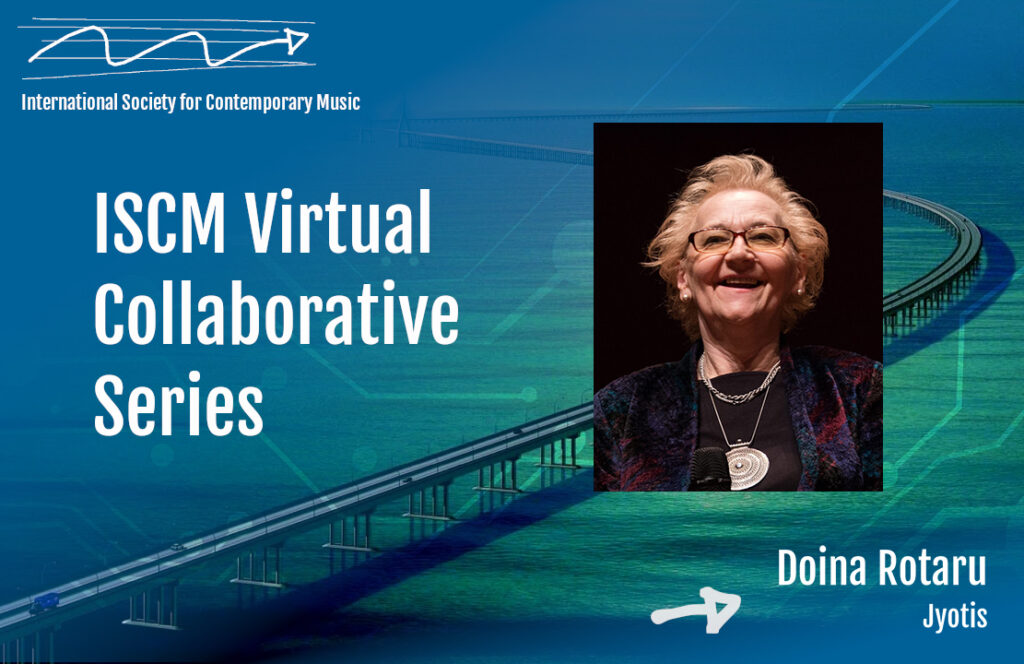Doina Rotaru: Jyotis

(Submitted by ARFA)
Doina Rotaru (b. 1951, Bucharest) studied composition with Stefan Niculescu and Tiberiu Olah at the National University of Music, Bucharest. In 1991, she was the recipient of a composer’s scholarship from the Hague Conservatory, where she studied with Theo Loevendie. In 1997, she was awarded a PhD in Musicology for her thesis on Solutions for New Music Provided by Archaic Traditions. Since 1990, she has taught at the National University of Music, where from 2008 to 2013 she was head of the Composition Department. Doina Rotaru is the author of twenty-five symphonic works, including three symphonies and thirteen concertos, and more than ninety chamber, instrumental, and choral works. She has received numerous awards: the Prize of the Romanian Academy (1986), the Prize of the Romanian Union of Composers and Musicologists (1981, 1990, 1992, 1994, 1997, 2001, 2004, 2007, 2011, 2014, 2015), and First Prize in the Gedok-Mannheim International Competition (1994). Her works have been performed in Europe, Australia, Canada, China, Japan, Hong Kong, Taiwan, and the United States of America. From the Romanian folk tradition Doina Rotaru has adopted the principles of continuous variation, heterophony, and modal harmony, demonstrating a particular interest in timbre, colour, and refined acoustics as a means of harnessing little-exploited resources of musical instruments. Doina Rotaru’s wholly individual style rests upon an archetypal aesthetics, consisting in the use of particular models of timbre and acoustics drawn from an ancient stratum of trans-geographic folk music (not only Romanian, but also from the Far East), as well as certain structural principles of symbolic value and function (circular and spiral forms, sacred numbers, and so on).
About her 2017 solo flute composition Jyotis, the composer writes:
In Indian philosophy, Jyotis means Light. I’ve always associated the flute with light (both as natural phenomenon and spiritual elevation), not only for the transparence, purity and beauty of its sound, but also because the flute’s incantations were the main intermediary between human beings and Gods in all the traditional cultures. In the three sections of my work, there are different hypostases of Light: an incantation – inner prayer (the pale, timid light rises gradually and becomes burning and imploring), the shadow-light duality (the light springs out from dark in a frenetic and obsessive dance) and the alternation between sacred and profane, with hints at the Byzantine Romanian Church music and the traditional Romanian peasant music (the sacred – with a solemn, peaceful and resigned expression – alternates with the extrovert – warm and shining light from the diatonic folksongs spirit). Commissioned by Radio France, Jyotis was written for the unique Mario Caroli, as many of my flute works.
